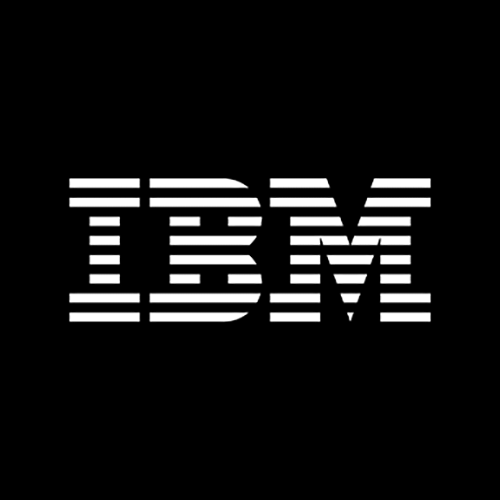Enterprise Tech Veteran Sandy Carter Discusses Enterprise Use Cases for Blockchain Technology
Having originally cut her enterprise technology teeth at Tivoli and IBM (and then later at Amazon Web Services), Unstoppable Domains Chief Operating Officer Sandy Carter is no stranger to IT. Now, she’s about to release a book titled The Metaverse Mindset of Web3, AI, and the Future of Business. The timing of the book is uncanny given the groundswell of activity currently percolating around distributed ledger technology (DLT) and ChatGPT. At the Outer Edge LA 2023 Conference in Los Angeles, Blockchain Journal technical analyst Bob Reselman took the opportunity to interview her about the book and the sorts of applications she’s seeing for blockchain in the enterprise.
Among the examples she offered, perhaps the most interesting one has to do with how Lowe’s Companies, Inc. (the hardware chain) is using non-fungible tokens (NFT) as a form of theft protection for power tools. Carter talks about some other enterprise applications that she’s come into contact with (including one at luxury car brand BMW) and advised enterprises to form rabbit teams. Unlike tiger teams, rabbit teams are teams that can not only go down rabbit holes where it’s necessary for pre-ideation technical diligence, but they can also really hop to it (get it done fast).
(The full-text transcript appears below.)
By Bob Reselman
Published:April 2, 2023

7 min read
Audio-Only Podcast


Full-text transcript of Bob Reselman's Interview with Sandy Carter, COO of Unstoppable
Bob Reselman: Hi, I'm Bob Reselman, and I'm with Blockchain Journal, and I have the privilege of interviewing Sandy Carter, COO of Unstoppable. Sandy has an enormous amount of experience in Fortune 500 adoption of Web3 and metaverse Technologies. Did I get it right?
Sandy Carter: You got it right. You did great. Thank you, and welcome to everybody from blockchain. I love blockchain.
Reselman: Block-changed your head. Blockchain Journal.
Carter: Blockchain Journal. We like the blockchain too. We're actually into Distributed Ledger Technology. That's our big forte, but anyway, enough about me. Okay. Sandy, what about you? Tell me, how is what you do applicable to the Fortune 500s in the world?
Yeah, well, I actually grew up in IBM and in Amazon Web Services, so I have a lot of experience with large and Fortune 500 companies because I used to work for one, and what I've been doing is, I did thousands of hours of research for a new book I have coming out called The Metaverse Mindset of Web3, AI, and the Future of Business. Of course, blockchain is included in there because it has to be. Everything is based on it, and so I got to talk to hundreds and hundreds of companies who are doing this today that are Fortune 500, so like BMW and Forever 21, Accenture, and more, so just lots of great examples and use cases where this is becoming real today.
Reselman: So can you give us a couple [of] examples of companies where it really is becoming very real?
Carter: Yeah. So a great one I think is Lowe's. You know Lowe's is a retailer of hardware goods, and one of the things that they're piloting with right now is placing NFTs on their power tools, so now the NFT becomes like a digital twin, so just basically a copy of what you have in the physical world, and then they're going to mint it. Minting means that it now becomes real on the blockchain, so it showcases ownership, and they're looking at that to see if they can identify where they have theft occurring in their stores. They're hoping that it will save them $700,000 on every billion dollars saved. So let me say that again: save them $700,000 on every billion dollars sold. So this is in an experimental stage right now, but if this really works well for Lowe's, I think it will transform this whole consumer good[s] area. Another great example I think is BMW.
BMW is the first auto manufacturer to join the Metaverse Standard Alliance, and what they've done is set up a metaverse to gather new information and new co-creation with customers, with researchers, and developers around the world. I think that's a great example because figuring out product requirements — something I learned at Amazon Web Services, product management is so important — and if you can use any additional tool to do that and get that immersive experience, it's very important, and then I'll give you one more, it's not really a sexy one, but it has a lot of cost savings and that is Mossini. They do metal processing, and what they've done is created a digital twin with Altair as their partner, and so they simulate with metaverse and AI what metal processing looks like, so instead of wasting metals, they can do it all in the metaverse.
Simulation, again with AI, inside of that metaverse, they save 15% of their waste alone and also are now supporting obviously sustainability with climate change. So those are just some of the examples.
Reselman: Yeah.
Carter: I have many more, but you'll notice one of the things that I talked about is a lot of these are in [the] experimental stage. So we're brand new in this space. blockchain has been around a long time, but a lot of the things I'm talking about that are built on the chain are new concepts, and so a lot of these will be experimentation and tracking business outcomes or business results so that they can then be used as a best practice case study.
Reselman: Great. So let me ask you what advice could you give to an executive, a person with some significant responsibility, that's considering adopting these technologies but they're sitting on the fence a little.
Carter: Yeah.
Reselman: How do you think they should be thinking and what they should be doing?
Carter: Well, one of the things I advise companies to do is to start what I call a rabbit team, and a rabbit team is just a team that can look around the corners, is different than your typical tiger team because I ran many of those as a VP at Amazon Web Services because a rabbit team's going to go down the rabbit hole, which is a Web3 terminology, but they're going to be fast. The technology is changing so quickly, they need to be able to move really rapidly. So to build that team to check out all of these new technologies that are occurring, they're all built on Blockchain. So many enterprises are already leveraging blockchain. So leveraging some of these applications, like Web3 for digital identity or the metaverse for digital twins embedded with AI, is really essential.
So one, I think they should form a team. Two, I think that you should, I call it "playstorm", so not brainstorm, but playstorm, and why this is really important is that all of these concepts are very immersive and very engaging, and for you to really see and know what's happening, it's really important that you experience it. So for example, I'm a professor at Carnegie Mellon Silicon Valley, and I taught a class there in the metaverse, and teaching a class in the metaverse, having students come in, they learn so much about it by going into it and experiencing it. There are just some things you can't read about or even listen to great interviews on. You have to get your hands dirty and then decide something to try out, like a digital twin or co-creation in the metaverse or setting up a headquarters or even just doing something simple like a ticket that's built on the blockchain for your next conference. You can just experiment with the technology in that way.
Reselman: So it sounds experimentation is the place to start, but from what you're telling me, there's a real world, real benefit, the bottom line here, and it's something that it's not moved beyond fantasy. It's a real thing.
Carter: Definitely moved beyond fantasy. There are so many great experiments. One of the things that I do as well, I have templates out for business cases, how you might save money, how you might increase your sustainability or focus on that particular area, how you can drive costs down, leveraging and using some of these new concepts, so I always believe that whatever you experiment with, you should measure. You always get what you measure, so having that experimentation is really important, and I would also say that utility is greater than hype. There's a lot of hype out there, a lot of big grand plans that aren't coming through, but there are some great experimentation that are yielding some great results. One of my favorite quotes is, "We overestimate the impact of technology in the short term." We expect the metaverse and blockchain to be instantly successful, but we underestimate its impact in the long term, and I do believe that this whole space, blockchain, Web3, metaverse, and AI, is going to be underestimated for its long-term impact.
Reselman: Great. So, just so our viewers will be reminded of your book, the title is?
Carter: It's called The Metaverse Mindset of Web3, AI, and the Future of Business.
Reselman: When's it coming out?
Carter: It's coming out in the next couple [of] months.
Reselman: Wow. Well, that... that's good. So, thanks for taking the time to talk to us.
Carter: Yeah, thank you, and thanks for having me, and continue on that blockchain journey with the Blockchain Journal because I do think that the blockchain is the base and the foundation of everything that is to come in the future.
Reselman: Great. So this is Bob Reselman with Blockchain Journal, and I'm here with Sandy Carter of Unstoppable, and thanks for listening in, and have a good day.













